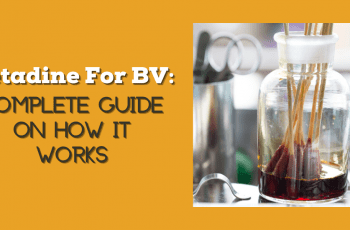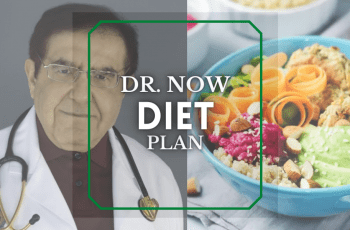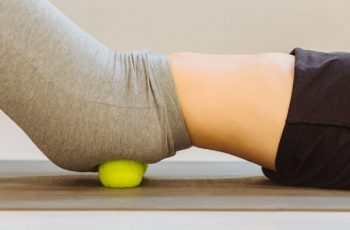Are you looking for ways to improve your eyesight naturally? With the right strategies and habits, you can enhance your vision and promote overall eye health. In this article, I will guide you through effective techniques and practices for better eyesight.
Many age-related vision changes can be corrected with surgery, glasses, or contacts, while others can be prevented or slowed through holistic eye care and healthy habits. It’s essential to take proactive measures to maintain optimal vision and prevent common eye conditions.
To start, incorporating simple exercises into your daily routine can make a big difference. One popular exercise is the 20-20-20 rule – every 20 minutes, take a break and look into the distance for 20 seconds. This helps reduce eye strain and keeps your eyes refreshed.
Another crucial aspect of maintaining good eye health is regular eye exams. These exams are essential for early detection and treatment of any vision problems. Certain risk factors, such as ethnicity, weight, family or personal history of eye problems, and chronic health conditions like diabetes or high blood pressure, can increase the likelihood of eye conditions.
Furthermore, it’s important to be aware of common eye conditions and their prevention strategies. The most prevalent eye conditions include refractive errors, age-related macular degeneration, cataracts, diabetic retinopathy, and glaucoma. Taking preventive measures, such as not smoking, eating a healthy diet rich in dark leafy greens and omega-3 fatty acids, regular exercise, using protective eyewear, washing hands before handling contact lenses, and wearing sunglasses with UVA and UVB protection, can significantly improve your eye health.
Throughout this article, I will delve deeper into the specific ways you can improve your eyesight naturally and maintain optimal eye health. From essential nutrients to healthy habits and targeted exercises, you’ll discover a range of effective strategies to enhance your vision and well-being.
Ways to Improve Your Eyesight Naturally
- Regular eye exams are crucial for early detection and treatment of vision problems.
- Implement the 20-20-20 rule – take a break every 20 minutes and look into the distance for 20 seconds.
- Avoid smoking and consume a healthy diet rich in dark leafy greens and omega-3 fatty acids.
- Practice good hygiene by washing hands before handling contact lenses.
- Wear protective eyewear and sunglasses with UVA and UVB protection.
Essential Nutrients for Eye Health
When it comes to maintaining healthy eyesight, incorporating the right nutrients into your diet is essential. Vitamins and antioxidants play a crucial role in preventing vision problems and promoting overall eye health.

One group of important nutrients for eye health is vitamins. Vitamins A, C, and E, along with the mineral zinc, are known to have antioxidant properties that can help prevent macular degeneration, a common age-related vision condition.
- Vitamin A can be obtained from foods like carrots, sweet potatoes, and spinach.
- For vitamin C, include citrus fruits, strawberries, and red peppers in your diet.
- Good sources of vitamin E include broccoli, spinach, and nuts.
- Zinc can be found in foods like oysters, beef, and pumpkin seeds.
In addition to vitamins, incorporating foods rich in omega-3 fatty acids is beneficial for eye health. Omega-3 fatty acids help protect the blood vessels in the eyes and can be found in foods like salmon and flaxseed.
Another group of essential nutrients for eye health is carotenoids, particularly lutein and zeaxanthin. These compounds are found in high concentrations in the retina and are known to protect the macula. Leafy green vegetables, broccoli, zucchini, and eggs are good sources of lutein and zeaxanthin.
If incorporating these foods into your diet is challenging, supplements can also be taken to ensure an adequate intake of these nutrients. However, it is important to consult with a healthcare professional before starting any new supplement regimen.
Healthy Habits for Better Eyesight
When it comes to maintaining good eye health, incorporating healthy habits into your daily routine is essential. Regular exercise not only benefits your overall well-being but can also reduce the risk of eye conditions such as diabetic retinopathy caused by type 2 diabetes. By managing chronic conditions like high blood pressure and multiple sclerosis, you can also contribute to better eyesight.
Protecting your eyes with appropriate eyewear is crucial, especially during activities that pose a risk of injury. Whether you’re playing sports or working in hazardous environments, wearing protective gear can significantly reduce the chances of eye damage.
One of the most important habits to adopt is following the 20-20-20 rule. If you spend long periods working on a computer or other digital devices, this rule can help alleviate eye strain. Every 20 minutes, take a break and focus on an object at least 20 feet away for 20 seconds. This exercise allows your eyes to relax and adjust, reducing fatigue and discomfort.
Quitting smoking is not only beneficial for your overall health but also plays a significant role in improving eye health. Smoking increases the risk of developing cataracts and age-related macular degeneration, leading causes of vision loss. By quitting smoking, you can protect your eyes from these potentially devastating conditions.
Your family’s eye health history can provide valuable insights into potential risks or conditions that may affect you. Knowing your family’s eye health history allows you to take early precautions and seek proper medical advice for any emerging issues.
Practicing good hygiene is another important aspect of maintaining optimal eye health. Always remember to wash your hands thoroughly before touching your eyes or handling contact lenses. This simple habit can help prevent the spread of infection and reduce the risk of eye-related complications.
By incorporating these healthy habits into your daily life, you can promote better eyesight and reduce the risk of eye-related problems. Regular exercise, managing chronic conditions, wearing protective eyewear, following the 20-20-20 rule, quitting smoking, being aware of your family’s eye health history, and practicing good hygiene practices all contribute to maintaining optimal eye health. Take proactive steps to protect your eyes and enjoy clear vision for years to come.
The Role of Vision Exercises (Palming and Massage)
When it comes to improving eyesight naturally, many people turn to eye exercises such as palming and massage. These techniques are believed to promote relaxation, reduce eye strain, and enhance vision. However, it is important to note that the scientific evidence supporting the effectiveness of these exercises is limited.
The Bates Method, developed by ophthalmologist William H. Bates, suggests that certain eye exercises, including palming, can help improve eyesight by relieving stress and tension in the eyes. Similarly, Yan Bao Jian Cao, a traditional Chinese medicine practice, incorporates massage techniques to stimulate the acupressure points around the eyes and improve vision.
While some individuals claim positive results from practicing these exercises, most of the evidence supporting their efficacy is anecdotal or placebo-driven. Scientific research has yet to establish a definitive connection between these exercises and natural vision improvement.
On the other hand, vision therapy is a well-recognized and legitimate area of optometry that focuses on addressing various vision issues. This therapy involves a series of treatments and exercises designed to improve visual alignment, tracking abilities, and eye strain. Vision therapy, when administered by a trained eye care professional, can be an effective approach to address specific vision problems.
Despite the popularity of vision exercises like palming and massage, a comprehensive eye exam conducted by an eye care professional remains the most reliable and accurate method to assess and address vision problems. This examination can help identify underlying issues and determine the most appropriate course of action for improving visual health.

Conclusion
Improving our vision naturally is possible through the adoption of healthy habits and lifestyle changes. By following a nutritious diet, engaging in regular exercise, using protective eyewear, practicing good hygiene, and abstaining from smoking, we can enhance our eye health and preserve optimal vision. It is also crucial to be aware of our family’s eye health history.
While some vision exercises may lack scientific evidence, a comprehensive eye examination conducted by a professional is essential for the detection and treatment of any vision issues. Through these holistic approaches and natural techniques, we can take proactive steps towards better vision and holistic eye care.
By incorporating these natural ways to improve vision into our daily lives, we can ensure that our eyes remain healthy and our vision remains clear. Remember, taking care of our eyes is not just an option; it is the key to maintaining a high quality of life and longevity of optimal eye health.
FAQ
Can I improve my eyesight naturally?
Yes, there are several natural ways to improve your eyesight. These include adopting healthy habits, practicing holistic eye care, and making dietary changes.
What are some natural remedies for better vision?
Natural remedies for better vision include eating a nutritious diet, exercising regularly, protecting your eyes with eyewear, practicing good hygiene, and avoiding smoking.
Are there exercises that can help improve eyesight?
While some exercises are believed to improve eyesight naturally, the scientific evidence supporting their efficacy is limited. However, vision therapy conducted by an eye care professional can help address alignment, tracking, and strain issues.
What are some tips for better eyesight?
Some tips for better eyesight include following the 20-20-20 rule (taking a break every 20 minutes to look into the distance for 20 seconds), undergoing regular eye exams, managing chronic health conditions, wearing protective eyewear, and washing hands before handling contact lenses.
Which foods are good for improving eyesight?
Foods rich in vitamins A, C, and E, as well as the mineral zinc, are beneficial for eye health. These include carrots, red peppers, broccoli, spinach, strawberries, sweet potatoes, citrus fruits, salmon, flaxseed, and leafy green vegetables.










